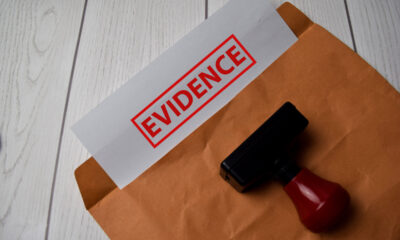In September of 2021, Texas made some drastic and somewhat controversial changes to its prostitution…
The world watched in horror as a Minneapolis Police Officer kept his knee in the neck of George Floyd, suffocating him until he lost consciousness and died. Floyd’s death has rightfully prompted outrage and led to global protests against police brutality and the justice system.
A harsh reality that we have to accept is police brutality is nothing new. However, because of the ubiquity of smartphones, we can see injustice much more. These devices allow us to record, share and witness the bad actions of not just police officers, but also the appalling acts of average citizens threatening police violence.
Can I record the police?
Yes. Constitutionally, you are guaranteed the right to photograph or record anything that is in plain view in a public space. The subject of your video or picture can be a building, public transportation, government officials, or the police.
Unfortunately, law enforcement officers often discourage, prevent, or even order you not to record situations you may, in fact, be legally entitled to. This is why it is important to know and understand your rights when it comes to taking pictures of or recording the police.
Your First Amendment Rights
The courts have ruled that taking photographs and video recordings of police is a constitutional right protected under the First Amendment. As long as police are performing their duties in public, the constitution guarantees the right to record their actions. While an officer may ask you to stop recording, you are not required to do so in most situations.
However, it is important to know that you may only record or photograph the police as long as you are not interfering or impeding their ability to perform their duty. If an officer feels that a person is interfering with their ability to perform their duties, they may demand you cease recording. In this case, you can either move away from the area to continue recording or comply with their request. Failure to comply with a lawful police order can result in being charged with interference with police duties and/or resisting arrest.
“There’s no real clear line of what is or isn’t interfering,” said Carlson Law Firm defense attorney Kyra Leal. “Usually, moving across the street is enough, but it’s very much a case by case determination.”
5 Tips for Recording the Police
Whether the stop is your own or you are watching another person’s detainment or arrest, if it is in public you can whip out your phone and film the encounter. However, when doing so, it’s important that you stay as safe as possible.
- Stay out of the way. If you are witnessing an event, it’s important that you stay clear of the investigation. Officers have personalities of all types. Officer Friendly may let you film without question, but another officer may not be so nice. No matter what, it’s best you err on the side of caution and keep the area clear.
- Be respectful. In any situation involving the police, being kind goes a long way. Respect officer requests of you to move to a different location.
- Never point your camera like a gun. This may seem obvious, but it’s worth sharing. Never give the police a reason to use deadly force against you.
- Do not hand over your phone. Unless the police have a warrant or your consent, you do not have to hand over your phone.
- Prepare to be arrested. If an officer threatens to arrest you if you don’t stop filming, you will likely be arrested. It’s up to you how far you are willing to push your luck. If you believe you’re being detained illegally, do not try to fight the police officer. All that will do is add more charges. If you were detained illegally, seeking legal counsel from a criminal defense attorney is the best way to fight those charges.
If you are witnessing an already tense situation, filming the police can make the situation worse. Protesting injustice is a necessary civil act of disobedience when it comes to protecting constitutional rights; however, keeping yourself safe is vitally important when doing so.
What should I do if a police officer detains me for taking photos or video?
While you are within your rights to record police officers, if an officer determines you are interfering and you refuse to comply with their orders, they may detain you. There is a chance that this detainment could result in additional charges such as resisting arrest. Remain calm and comply with officer requests. If you believe your detainment or arrest was illegal, you can speak with a criminal defense attorney to figure out your next steps.
Can Police Make Me Delete a Recording?
No. Just as an officer cannot force you to stop recording their actions in public, officers cannot tamper with any photographs or recordings you may have taken. Further, an officer cannot go through your phone or camera to view these recordings without your consent. In fact, whether or not an officer has a warrant, police cannot force you to unlock your phone. Courts have found that it is against your Fifth Amendment right against self-incrimination.
Although it is generally your right to photograph or record the police, the surrounding circumstances always matter. It is important to know your rights when recording the police so that you are able to exercise your constitutional right without landing yourself in legal trouble.
Carlson Can Help Protect Your Rights
Injustice has always existed, but technology allows us to see it more. If you filmed a situation involving the police and were arrested, call The Carlson Law Firm. Our experienced criminal defense attorneys offer free consultations and are available to answer any questions you may have.



